|

General Graham 20,000 British infantry
10,000 Portuguese Infantry
5000 British Cavalry
16 British artillery |
Battle of Villanubla
Aug 26th, 1809
Great War of Defiance |

Emperor Napoleon
25,000 French Line Infantry
2500 French cavalry
16 French Artillery |
It is a full week since the battle of Palencia when Napoleon
sends Marmont's I Corps southwest from Palencia. The force is much depleted from
what it was a few months before. In particular, the amount of available
artillery is severely lacking. Following the battle of Palencia, Wellington
hurried south to deal with a crisis at Gibraltar and General Graham was left at
Valladolid to supervise Hamilton's corps and coordinate with Drummond. General
Drummond had withdrawn his army westward to recover his losses and Graham was
left as the defense of the Old Castile capital. It has though been a week and
Drummond's troops are starting to come forward again.
As the French advance, Graham chooses a battlefield north of
Valladolid, near the village of Villanubla. Cooke, part of Drummond's command,
is on his right and Hamilton takes the left.
Napoleon urges Marmont to attack aggressively but, at all costs,
do not lose this army. Though the initial deployments would suggest that the
French have a monumental task ahead of them, Marmont goes applies himself with
good cheer and energy.
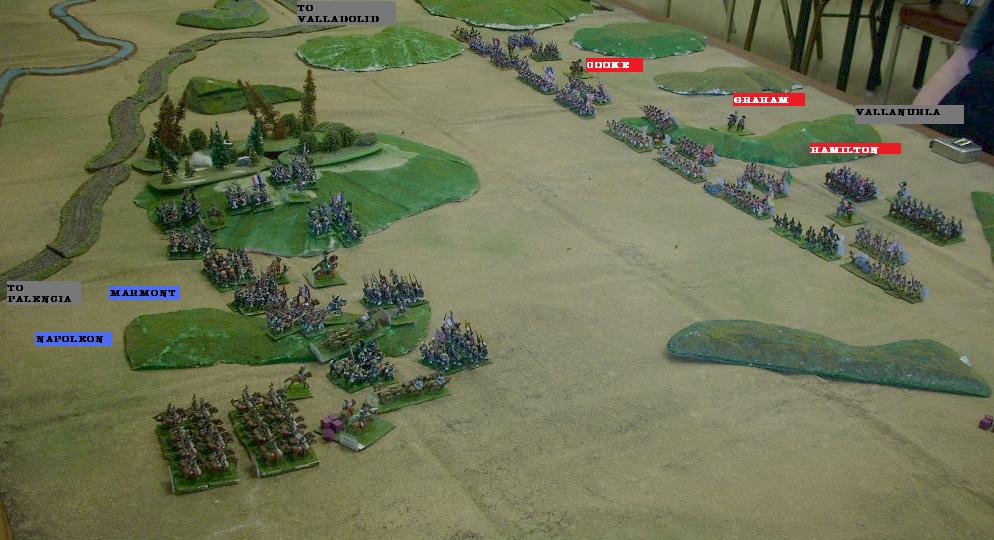
Within the first hour, the French are launching combined arms
attacks into the left of the British line. It is Picton that takes this first
rush and the rifles are sent scampering to the rear. Massed French columns bring
fire to bear against a narrow part of the battlefield.
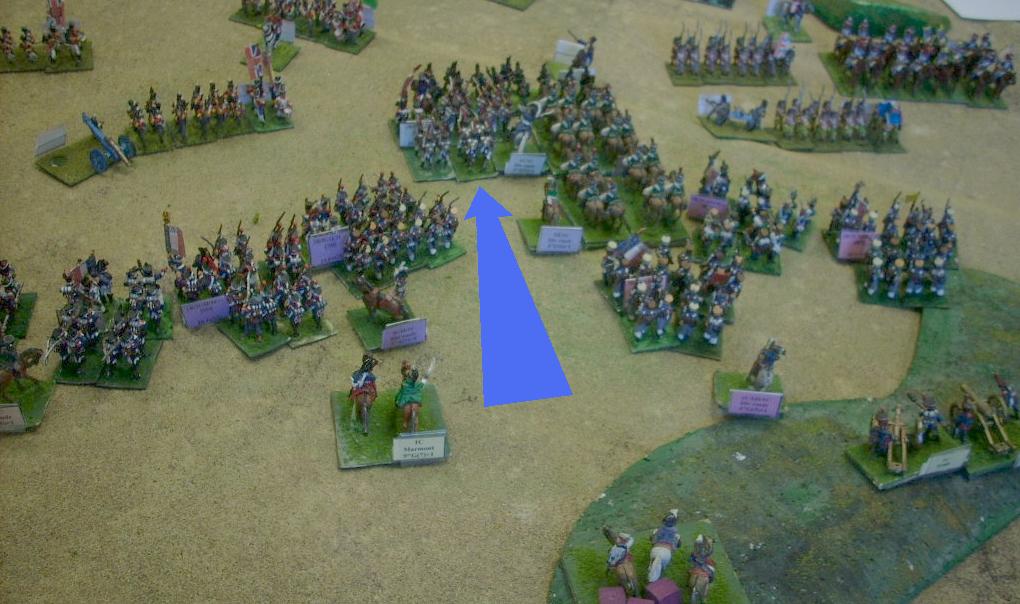
Holes quickly begin to form in the British center but Cooke's
corps is shifted into the center in time to repulse a French cavalry charge.
Marmont's cavalry will be out of the fight for the next couple of hours as it
regroups. In the center though, it is French grenadiers and young guard that are
driving relentlessly forward.
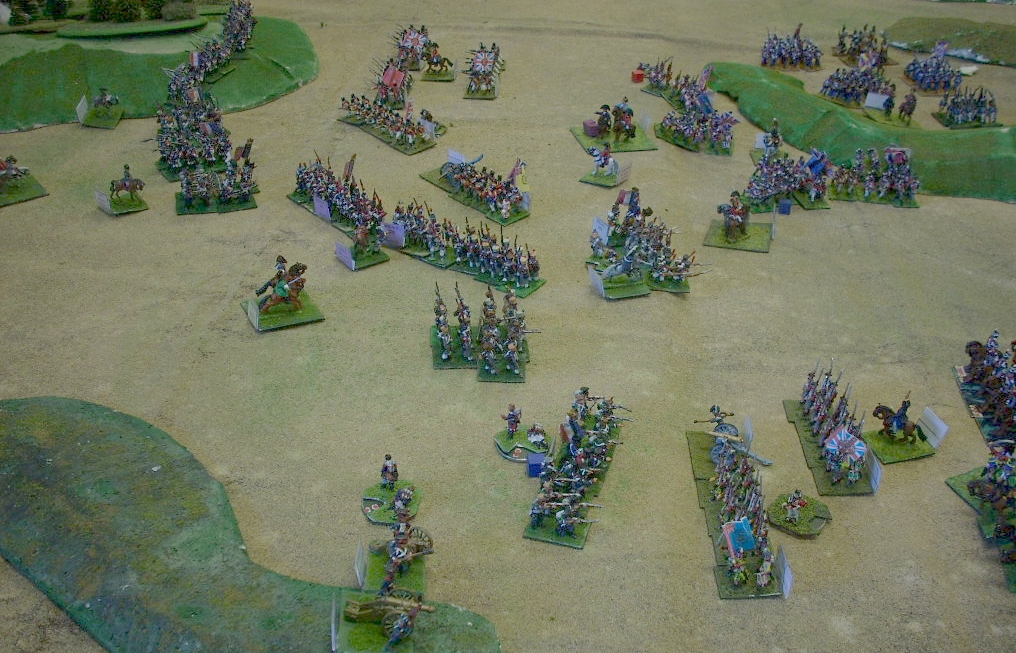
As French units are routed, commanders are hurried back to rally
them and get them advancing. This slows the attack but it would prove the
correct decision.
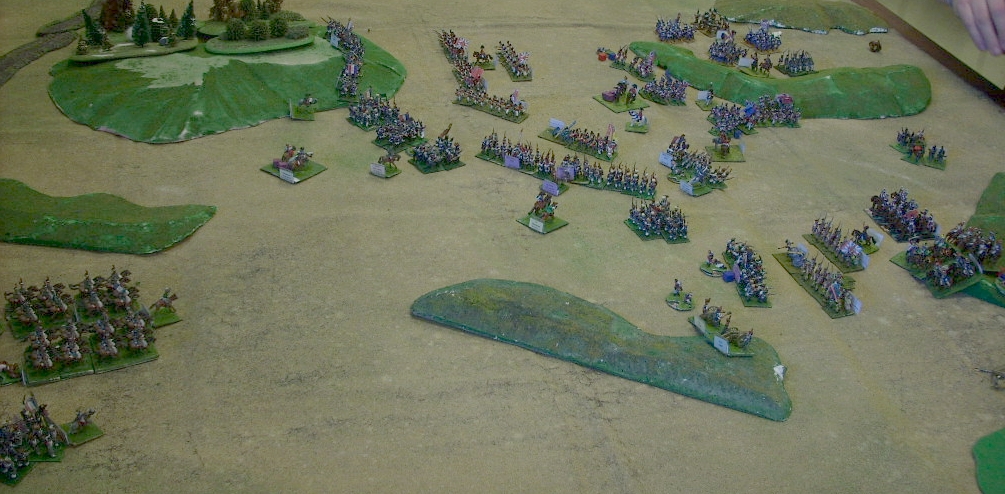
More columns are hurled into the breech that is appearing in the
British center. Cooke's troops, unable to deploy out of their columns, are made
to pay by French grenadiers. General Graham's personal position becomes
untenable and, in general, it becomes a very dangerous battlefield for British
generals.
From the south, General Uxbridge arrives from Valladolid with a
cavalry division.
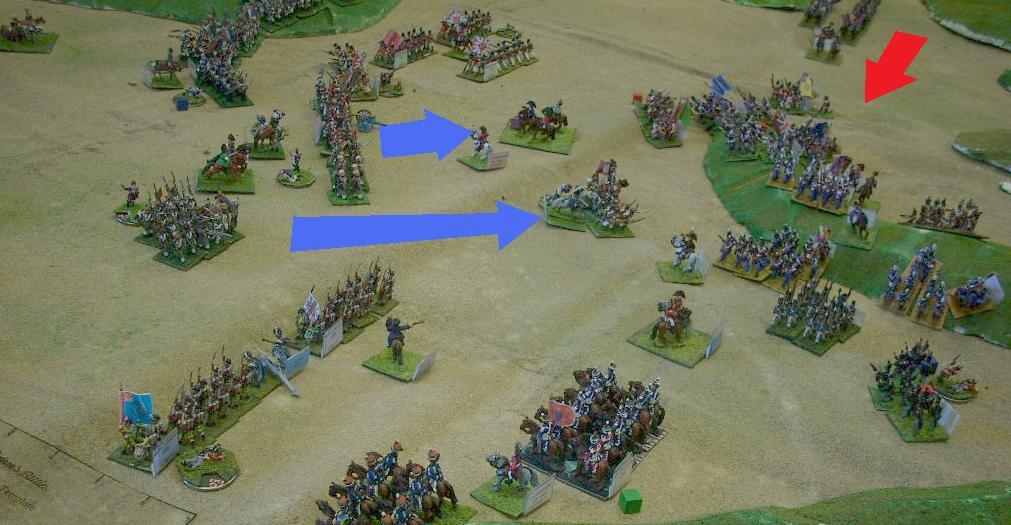
Uxbridge would manoeuvre to menace Marmont's static left.
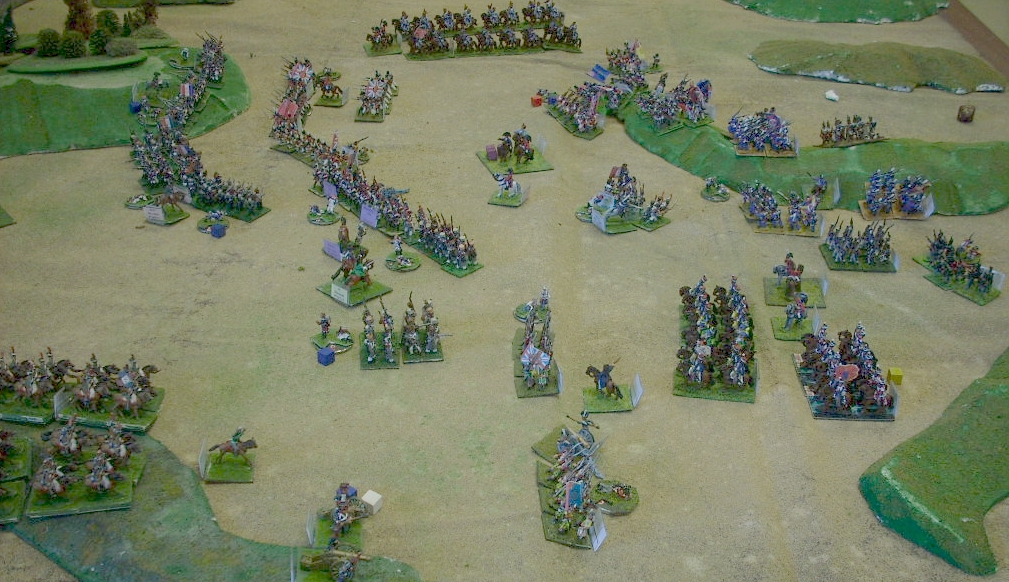
Cooke's Portuguese infantry would try to plug the ever widening
gap. A large portion of Graham's force is disordered and routed and the
Portuguese must buy time for the regulars to rally and reorder. Graham's right
flank, though encouraged by the presence of Uxbridge, suffers terribly against
French massed musketry.
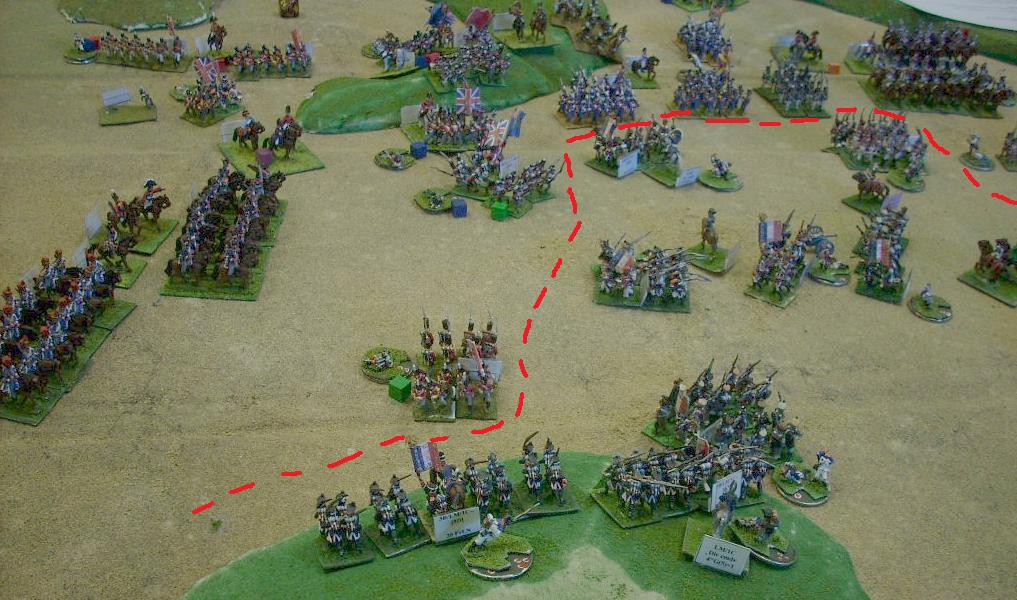
When French columns of infantry press aggressively against
Uxbridge though, they manage to rout one of the cavalry brigades which fatigues
Uxbridge's corps. The prudent response of the cavalry commander is to pull the
whole corps out of harm's way to reorganize.
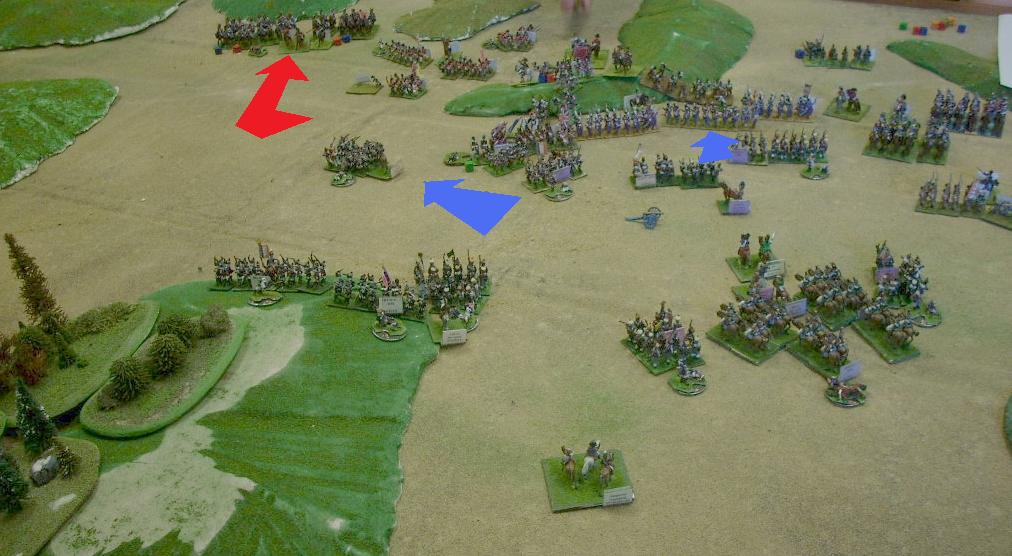
Marmont's cavalry returns to the battle and is poised to take
advantage of Uxbridge's circumstances. A couple of quick cavalry probes force a
British brigade into square and the Grenadiers press aggressively against it.
Leith's hussars would see an opportunity though and order a
charge against Marmont's cavalry. In the course of the Hussar charge, Marmont is
grievously wounded.
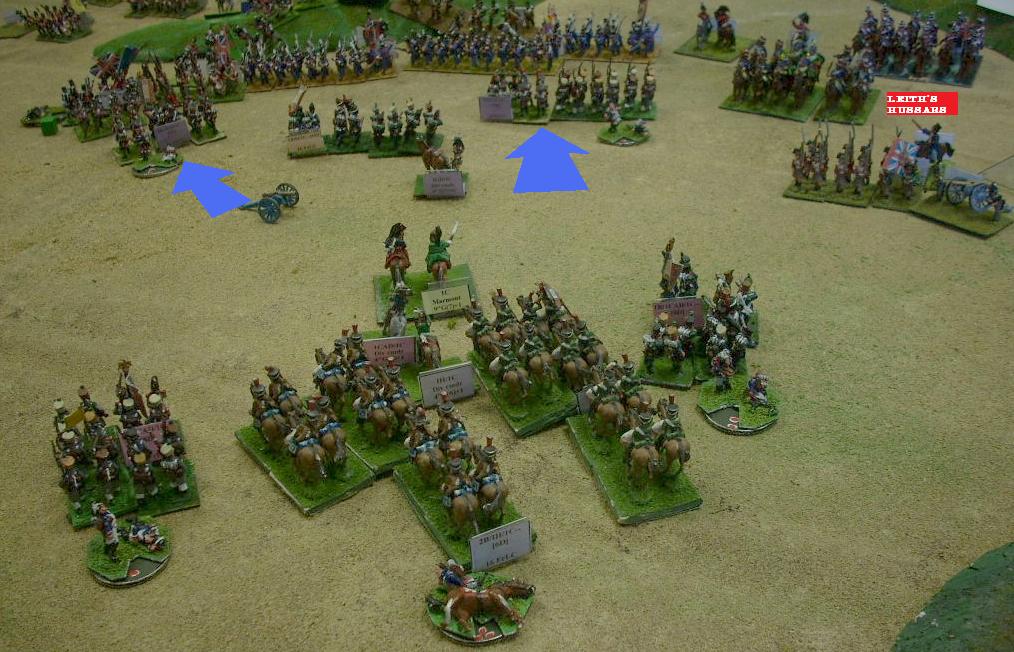
The Hussar attack is beaten off but Marmont's wound would prove
to be fatal. There is time for Napoleon to ride forward to hear the last word's
of the Marshal.
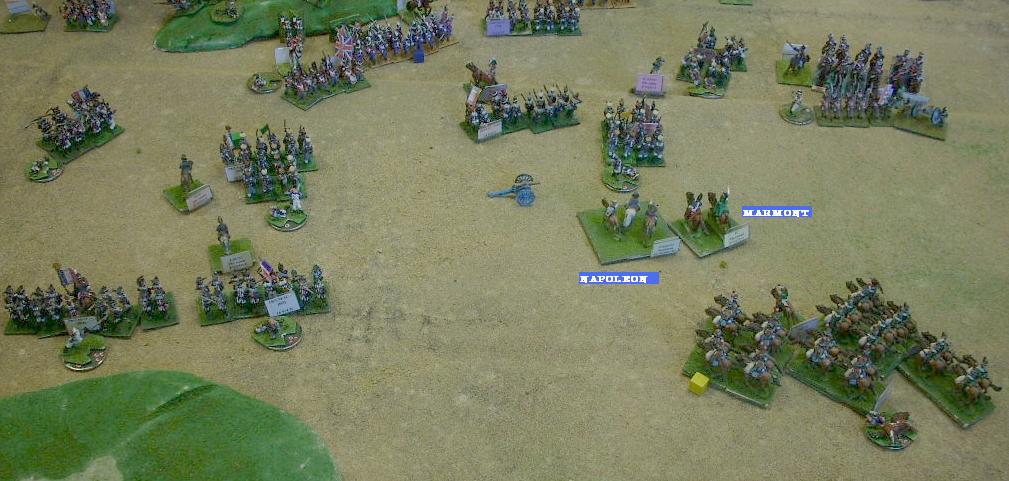
But Leith is not finished with his attacks and no sooner has
Marmont's soul passed when a thousand British cavalry ride forward and threaten
to overrun the Emperor. Fortunate smiles and Napoleon is able to escape the
initial rush. He joins the nearby French Hussars that are the subject of the
charge. The presence of the Emperor proves to be the deciding factor in the
cavalry melee that follows. The British are routed and, once again aided by the
presence of the Emperor, the French light cavalry maintains perfect order and
pursues with great success. That pursuit would result in General Hamilton
taking a light wound.
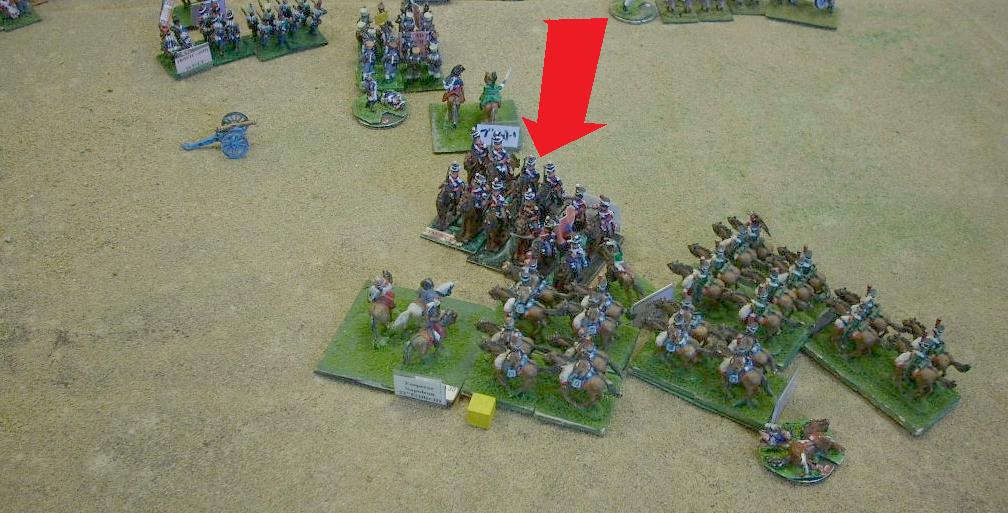
Even as the last of the Portuguese are routed back by the French
cavalry pursuit, the French left begins to withdraw. For all the success that
the French have been enjoying, they have been suffering heavy losses in doing
so.
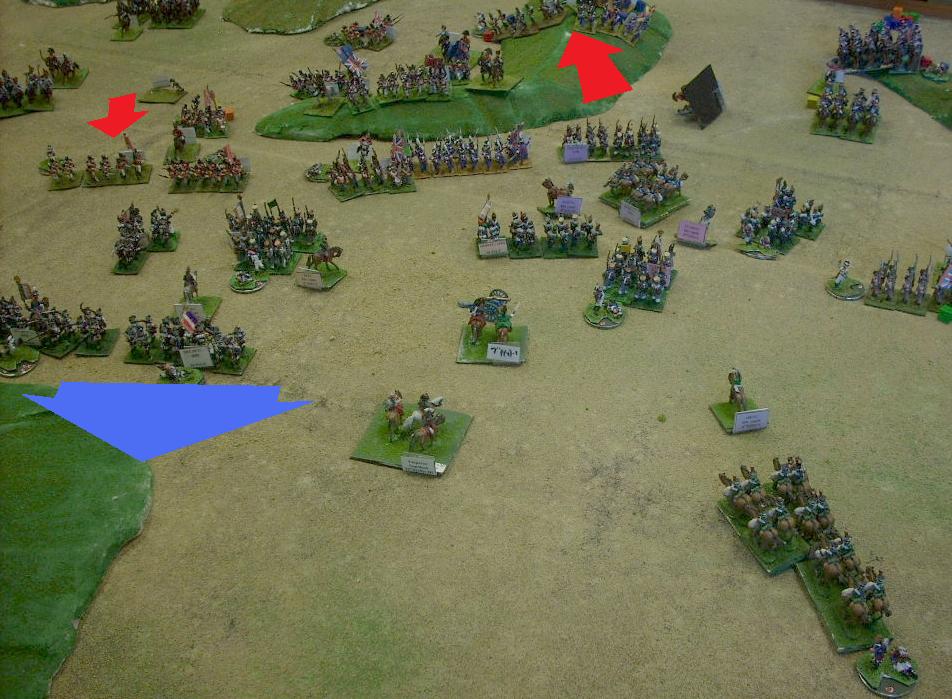
The armies separate and both sides are able to reorganize.
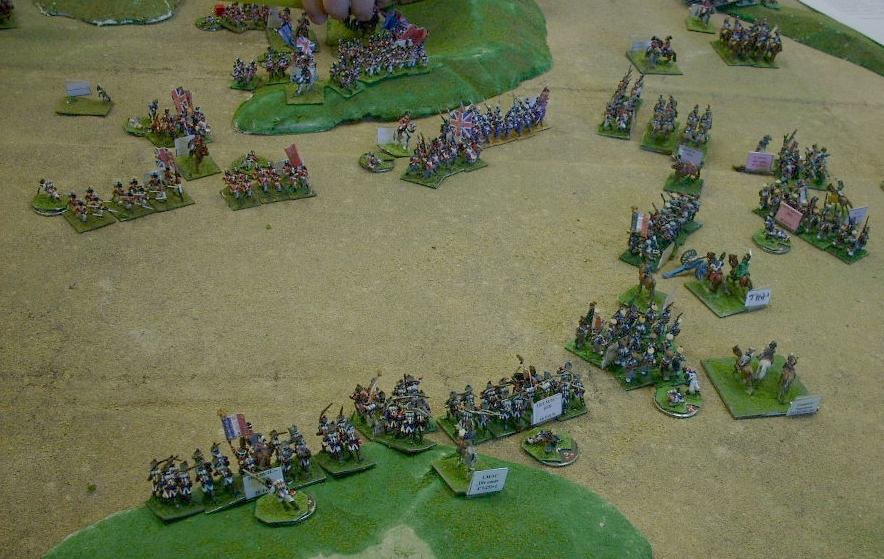
One more French cavalry charge is decisive and the Hussars are
disordered as they ride through the routed Portuguese, sabering them.
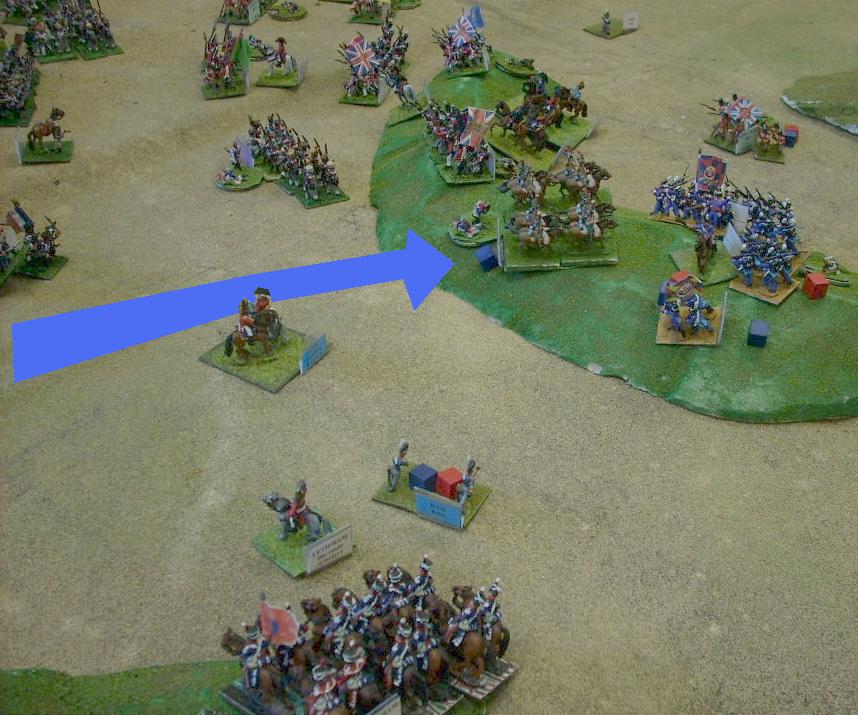
As the battle ends, Hamilton and Cooke's corps are exhausted and
unable to advance. The French cavalry is spent and Uxbridge is back in the
battle, fresh and vigorous.
Napoleon is aware that General Drummond is near and the
remainder of the British General's corps will be here by morning. There are no
French reinforcements near enough to call upon. The Emperor orders Marmont's
replacement to retreat back to Palencia.

















